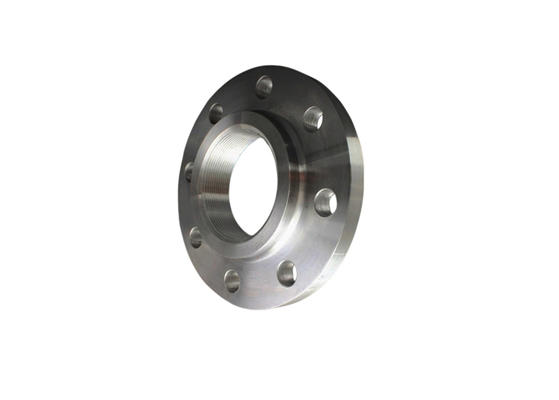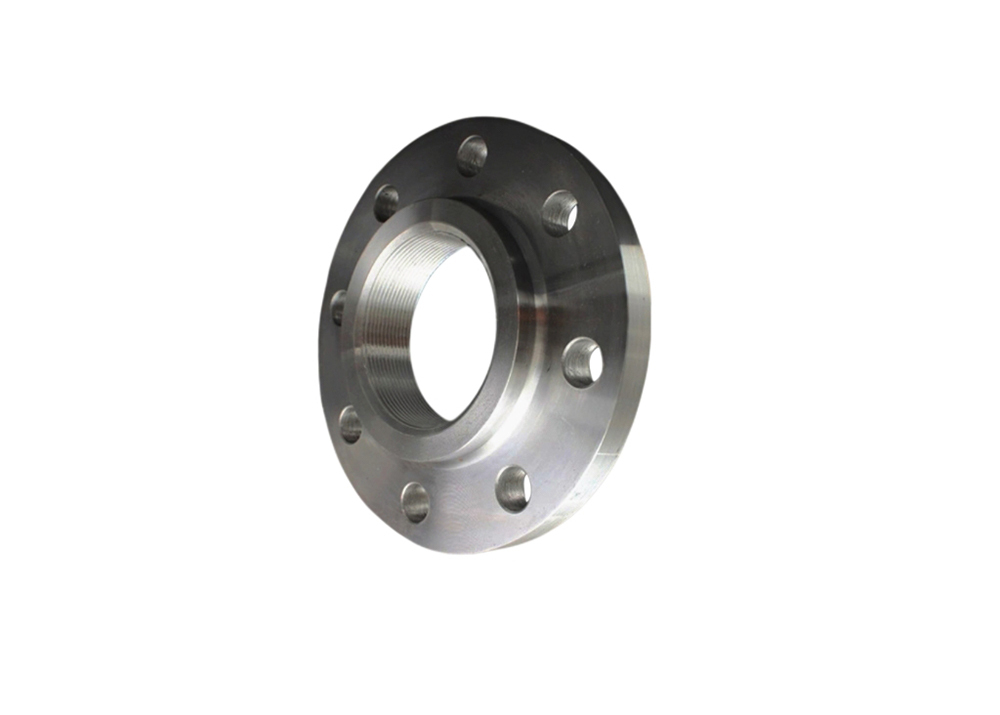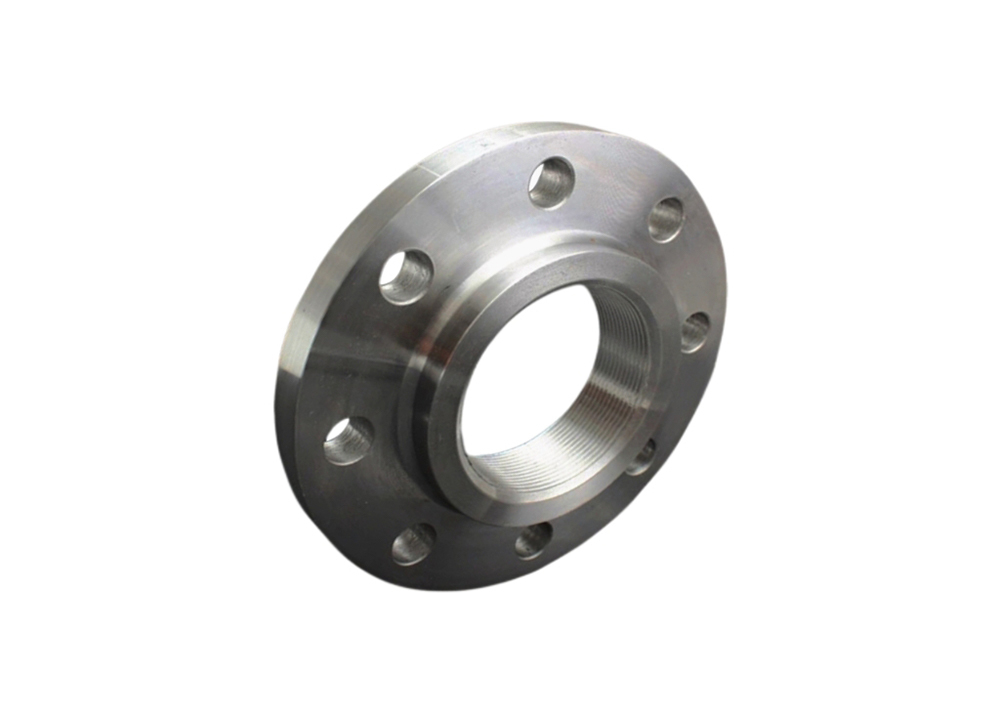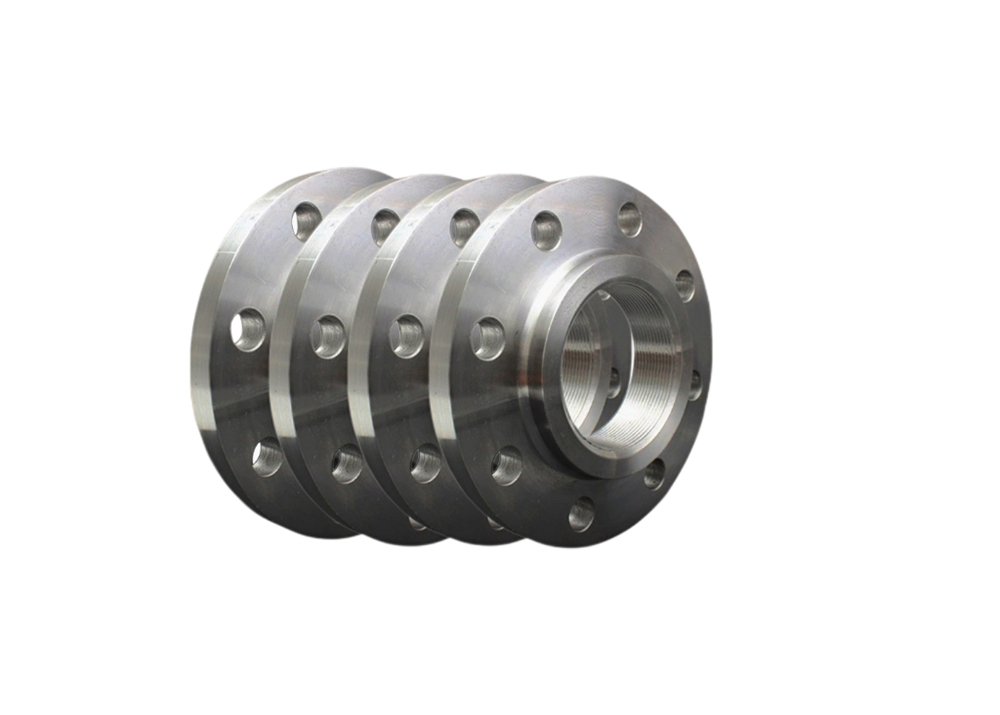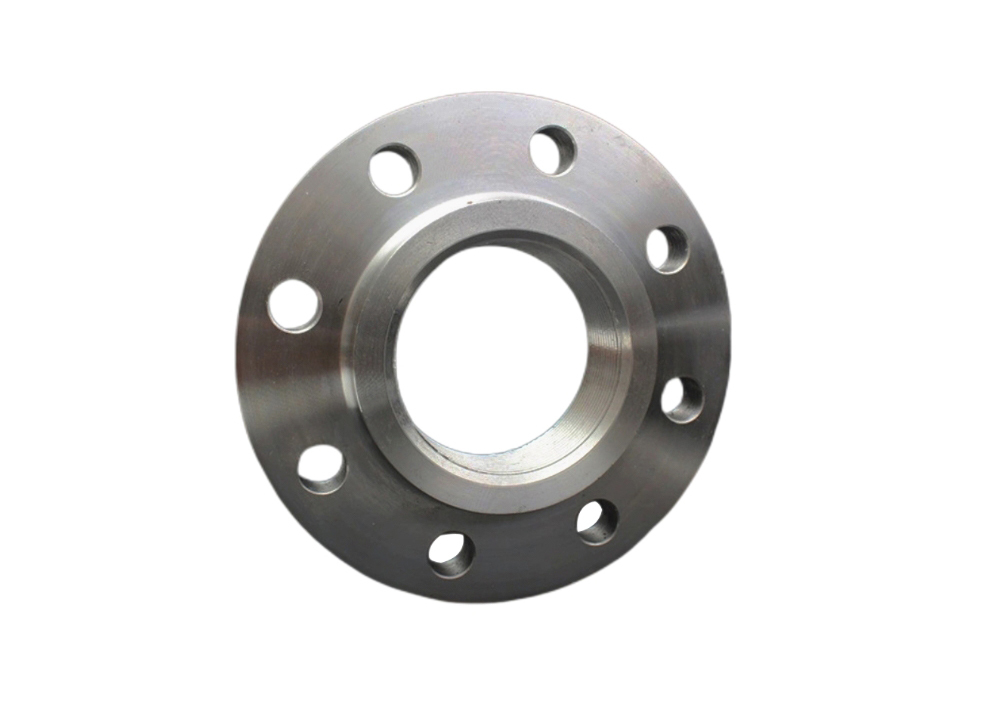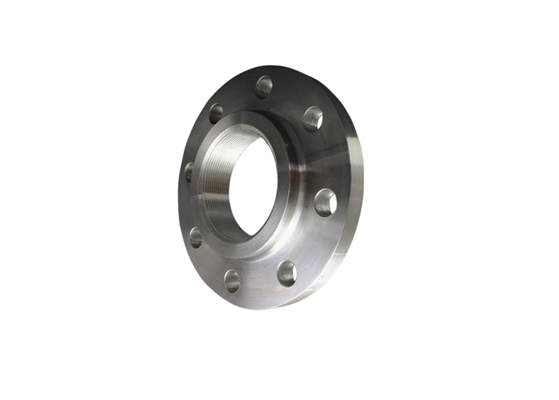
Titanium Threaded Flange NPS 1/2-6 Class 150 Forged RF/FF
-
Highlight
Titanium threaded flange NPS 1/2
,Class 150 titanium forged flange
,Titanium RF/FF flange NPS 6
-
Material DesignationTA1,TA2,TA9,TA10,GR1,GR2,GR7,GR12,GR16,N5,N6,N7 Etc.
-
SizeNPS 1/2-NPS 6
-
OEM/ODMAvailable
-
PressureClass 150,Class300
-
TechnicsForged
-
Sealing SurfaceRF,FF
-
Place of OriginShaanxi,China
-
Brand NameVOTECH
-
CertificationASME,ANSI
-
Model Numberclass150
-
Packaging DetailsExport Standard Wooden Case, or Can Be Customized
-
Delivery Time7-15 Days
-
Payment TermsL/C,D/A,D/P,MoneyGram,Western Union,T/T
-
Supply Ability100ton/Month
Titanium Threaded Flange NPS 1/2-6 Class 150 Forged RF/FF
Forged and CNC Machined Titanium Threaded Flange Pipe Fittings
Titanium threaded flanges are pipe end fittings made of non-ferrous titanium or titanium alloys. They utilize threaded connections rather than welding, using the internal bore of the flange machined to form pipe threads. Advantages include ease of installation and maintenance, and they are suitable for piping systems where welding is not permitted, particularly in low-pressure environments.
Titanium alloy threaded flanges are available in sizes from NPS 1/2 to NPS 6, and custom designs are also available based on customer specifications or drawings. Our titanium flanges are manufactured in strict accordance with ASME international standards to meet the diverse requirements of our global customers.
Titanium threaded pipe flanges are widely used in piping systems in industries such as chemical processing, petroleum refining, offshore engineering, power generation, pharmaceuticals, and food processing. They are particularly well-suited for handling highly corrosive media such as hydrochloric acid, sulfuric acid, and seawater. Titanium's high corrosion resistance allows it to maintain structural integrity and sealing reliability in harsh environments, significantly reducing maintenance costs and extending equipment life. Furthermore, compared to traditional stainless steel or carbon steel flanges, titanium flanges offer lower weight, making them valuable for high-end applications requiring weight reduction.
Product Specifications
- Standard: ASME, ANSI
- Material Designation: TA1, TA2, TA9, TA10, GR1, GR2, GR7, GR12, GR16, N5, N6, N7 etc.
- Size: NPS 1/2-NPS 6
- OEM & ODM: Available
- Pressure: Class 150, Class 300
- Technics: Forged
- Sealing Surface: RF, FF
- Type: Threaded flange
- Packaging: Export standard wooden case, or can be customized
- Application: Petroleum, chemical, shipbuilding, pharmaceutical, metallurgy, machinery, stamping elbow, food and other industries
Class 150 (mm) Dimensional Specifications
|
Nominal Dimension |
Outer diameter of steel pipe |
Connection size |
Flange thickness |
The large end of the flange neck |
Flange height |
Pipe thread specification Rc or NPT |
|||||
|
DN |
NPS |
Flange outer diameter |
The diameter of the central circle of the bolt hole |
Bolt hole diameter |
Bolt |
The number of bolt holes |
|||||
|
15 |
1/2 |
21.3 |
90 |
60.3 |
16 |
M14 |
4 |
9.6 |
30 |
14 |
1/2 |
|
20 |
3/4 |
26.9 |
100 |
69.9 |
16 |
M14 |
4 |
11.2 |
38 |
14 |
3/4 |
|
25 |
1 |
33.7 |
110 |
79.4 |
16 |
M14 |
4 |
12.7 |
49 |
16 |
1 |
|
32 |
1-1/4 |
42.4 |
115 |
88.9 |
16 |
M14 |
4 |
14.3 |
59 |
19 |
1-1/4 |
|
40 |
1-1/2 |
48.3 |
125 |
98.4 |
16 |
M14 |
4 |
15.9 |
65 |
21 |
1-1/2 |
|
50 |
2 |
60.3 |
150 |
120.7 |
18 |
M16 |
4 |
17.5 |
78 |
24 |
2 |
|
65 |
2-1/2 |
76.1 |
180 |
139.7 |
18 |
M16 |
4 |
20.7 |
90 |
27 |
2-1/2 |
|
80 |
3 |
88.9 |
190 |
152.4 |
18 |
M16 |
4 |
22.3 |
108 |
29 |
3 |
|
100 |
4 |
114.3 |
230 |
190.5 |
18 |
M16 |
8 |
22.3 |
135 |
32 |
4 |
|
125 |
5 |
139.7 |
255 |
215.9 |
22 |
M20 |
8 |
2.3 |
164 |
35 |
5 |
|
150 |
6 |
168.3 |
280 |
241.3 |
22 |
M20 |
8 |
23.9 |
192 |
38 |
6 |
Frequently Asked Questions
1. What are the outstanding performances of titanium threaded flange in terms of corrosion resistance?
Titanium threaded flanges have extremely strong resistance to corrosive media such as seawater and chloride ions. Their corrosion resistance far exceeds that of stainless steel and carbon steel, and they are especially suitable for harsh environments such as marine and chemical industries.
2. Do titanium threaded flanges need additional anti-rust measures?
No need. Titanium threaded flanges can be used for a long time without coating or cathodic protection, avoiding the risk of rust and significantly reducing maintenance requirements.
3. Where does the lightweight advantage of titanium flanges lie?
Titanium has a strength close to that of steel, but its density is only 60% of that of steel, which enables it to significantly reduce the weight of equipment in fields such as aerospace and shipbuilding while maintaining high load-bearing capacity.
4. How does titanium flange perform in low-temperature environments?
Titanium flanges can still maintain excellent toughness in ultra-low temperature environments (such as liquid nitrogen and liquid oxygen), making them an ideal choice for cryogenic engineering.
5. How is the high-temperature resistance of titanium flanges?
Titanium alloys (such as TA2 and TA9) can maintain stable mechanical properties at high temperatures of 300-500℃, and some materials can even withstand higher temperatures for a short period of time.
6. How do titanium flanges resist high-temperature oxidation?
At high temperatures, a dense oxide film forms on the surface of titanium, which can effectively isolate oxygen and prevent further oxidation of the material.
7. Why is the service life of titanium flanges longer than that of stainless steel?
In corrosive environments, the lifespan of titanium flanges can be over ten times that of stainless steel, and they require almost no maintenance, resulting in a lower total life cycle cost.
8. Why are titanium flanges still economical despite their high initial cost?
Although the initial purchase cost of titanium flanges is relatively high, their extremely long service life and very low maintenance requirements significantly reduce the long-term usage cost, making their overall economic performance better.
9. Are titanium flanges suitable for the pharmaceutical and food industries?
Yes. Titanium has non-toxic and harmless biocompatibility, and its material purity is high, fully meeting the strict hygiene requirements of fields such as pharmaceuticals and food processing.
10. How are the processing and welding properties of titanium flanges?
Titanium flanges support various welding methods such as TIG welding and plasma welding, with high weld strength. They can also be designed in interface forms such as flat welding, butt welding, and threaded welding, to meet the requirements of different pipeline systems.
Our Advantages
- Strict Quality: We have rigorous quality control measures with ASME, JIS, DIN, GB, GOST, ensuring that every titanium product we produce meets industry and customer requirements.
- Modern Production Facilities: We have the most advanced factory and multiple titanium metal production lines, enabling us to handle bulk orders and customized projects.
- Logistics and Packaging: Every order is carefully packed in wood cabins or trays to prevent damage during transit, offering maximum protection and safety.
- Experienced Team: With years of professional knowledge in titanium metal manufacturing, we understand the nuances of producing high-quality products to meet the needs of various industries.
- Comprehensive Service: We offer customized solutions, fast lead times, and dedicated support throughout the purchasing process.
- Customer-Centric Services: We offer flexible payment options, comprehensive technical support, and dedicated customer service to make your purchasing process seamless.

